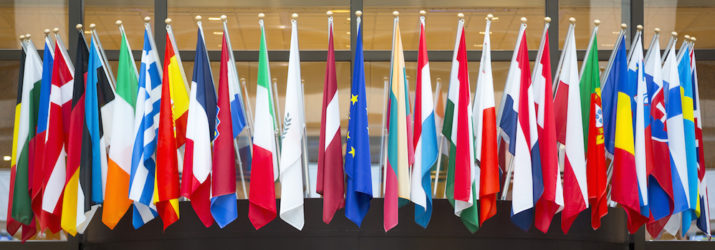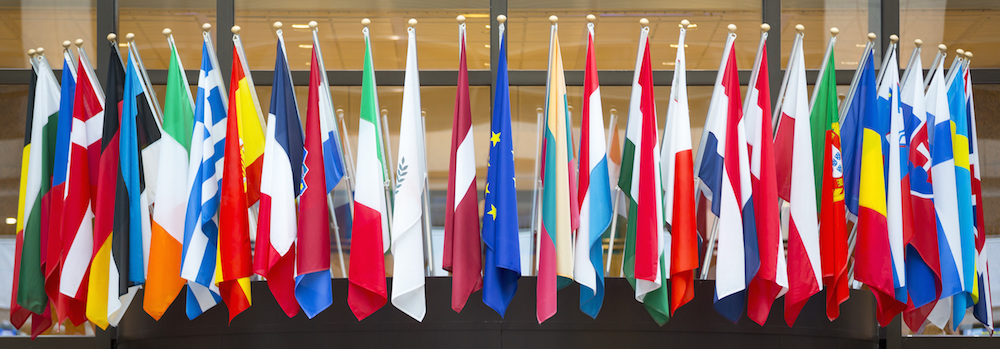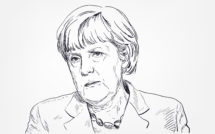

Among the EU policies, humanitarian aid has been one of the most expressive, expected to represent and apply the European principles and values in the world. It has changed a lot over the decades in its strategy, actors, and tools, trying to adapt to the transformations in the global environment and to fulfill international duties. It has gradually shifted from a very specific and limited policy to a wider platform that includes more tools and financial resources. The Directorate General for Humanitarian Aid and Crisis Management (ECHO) was created in 1992 by the EU Commission (the second Delors Commission), with the initial technical task of coordinating EU aid through the contributions of various actors. Through successive adjustments, and following the Lisbon Treaty, its role has been implemented and increased, becoming more political and figurative, dealing with the need to promote the image of the EU in the global system.
Today, the EU is one of biggest donors, intervening to help people involved in almost all regions of the world in a variety of crises, natural disasters, conflicts, and political instability. Within the aid policy, member states have maintained their prerogatives to preserve and execute their agenda, according to common principles and efforts. ECHO does not act on the ground, but provides mandates and resources to its partner organizations. It is assuring coherence and unity, coordinating all actors, and maintaining a special relation with non-governmental organizations (NGOs), whose projects are directly funded.
The interest in the influence that non-state actors try to exert in various policy fields has been strong among the International Relations scholars, although it is a controversial topic, difficult to measure and to substantiate in terms of legitimacy and accountability. NGOs’ impact has been widely investigated, even in the most sensitive policy sectors, related to security and humanitarian action.
As the most relevant and controversial players in the global emergency policy-making and implementation, NGOs are provided with their own approaches and ideas on how to deal with states and International Governmental Organizations’ (IGOs). Even though such approaches may be very different in principle, in practice, they are complementary to governmental actions. As structural part of the humanitarian system, NGOs interact with them and contribute, directly or indirectly, to shape policies and practices.
In this respect, the EU aid policy is an explanatory case, because NGOs have strongly developed their relations with EU institutions and ECHO, but have also retained direct relations with Member states. NGOs have continued to offer their expertise, presenting themselves as efficient implementing actors to both ECHO and states, serving and shaping the ways the policy has been applied over the years.
Passing through these uncertain times, the EU aid policy developed as a multi-layered policy process, made of national interests, common values, universal principles, and global duties. However, its performances and outcomes depend on various unpredictable factors.
First, in its feasibility, the expansion of ECHO competencies, activities, and budget have brought a massive diversification of actions and implications to be applied to more sensitive fields, like assistance to refugees and internally displaced persons (IDP) in conflict zones, like Syria and Iraq.
The usual ECHO mechanisms have been integrated by additional funding instruments, like the Refugee Facility for Turkey, to support humanitarian projects in favour of refugees hosted in camps in Turkey, along the Syrian border. The operation looks like a relocation of funds and a diversion of budget invested towards a new set of humanitarian objectives. However, the extension of the EU humanitarian agenda, the multiplication of its goals, the inclusion of more sensitive issues beyond the traditional cooperation with third countries, and the management of transboundary and complex crises also have serious political implications that, in the long-term, will produce their effects, particularly in legitimacy and accountability. Therefore, the mechanisms may become too complicated and fast-growing.
Second, in its legitimacy and coherence, a growing tendency to cooperate with NGOs and to delegate executive functions to them is demonstrated by member states but also by ECHO. This is inevitable. Political élites are aware that humanitarian aid should involve a set of tools, mechanisms, and competencies that go well beyond the traditional ones. NGOs are functional to this and fulfil the need of more legitimacy, making the external intervention more acceptable and accepted. This produces a substantial convergence among member states and EU institutions in the support to NGOs. Not all member states are committed to invest in humanitarian aid, even though they are the majority. And, not all states are committed do so at the same level.
Obviously, the EU humanitarian policy represents only one of the policies and cannot be considered exhaustive, and the aid provided through NGOs is a large part but not the only one. However, this also tells more about the level of commitment of main actors and the respect of the principle of solidarity.
This brings to the third factor. The EU aid policy is driven by universal humanitarian principles and obeys rules and practices established on a global level, but it should be, first, an expression of EU solidarity. The EU committed to a role of international actor, to manage crises, to assist people in need, and to provide security and stability in neighbourhoods and in the world. Member states agreed to invest their resources in such policy and to pursue national agendas. Using NGOs as implementing actors has been a factor that has complemented and enhanced both channels. However, performances are diverse and flexible, and ECHO budget and member states’ propensity to funds may be affected by several political variables and considerations.
Lastly, and the most unpredictable, Brexit is expected to impact the EU aid policy in quantitative and qualitative terms. The UK was one of the most generous donors in such policy and provided the EU with a high propensity to sustain NGOs as implementing actors. Such a contribution will continue outside the EU, but it is likewise certain its withdrawal will decrease the level of investment in ECHO and will influence the relations with NGOs.
Academic debates on this topic are expected to continue. Once again, the EU is a good laboratory in which trends and innovations can be experimented and tested.
Daniela Irrera is the author of EU Emergency Response Policies and NGOs (Palgrave, 2018), where she presents a reflexion on how the EU humanitarian aid policy is structured and how NGOs are trying to play their part.
Photo: Flags of the European Union | Shutterstock
Published on March 15, 2018.




